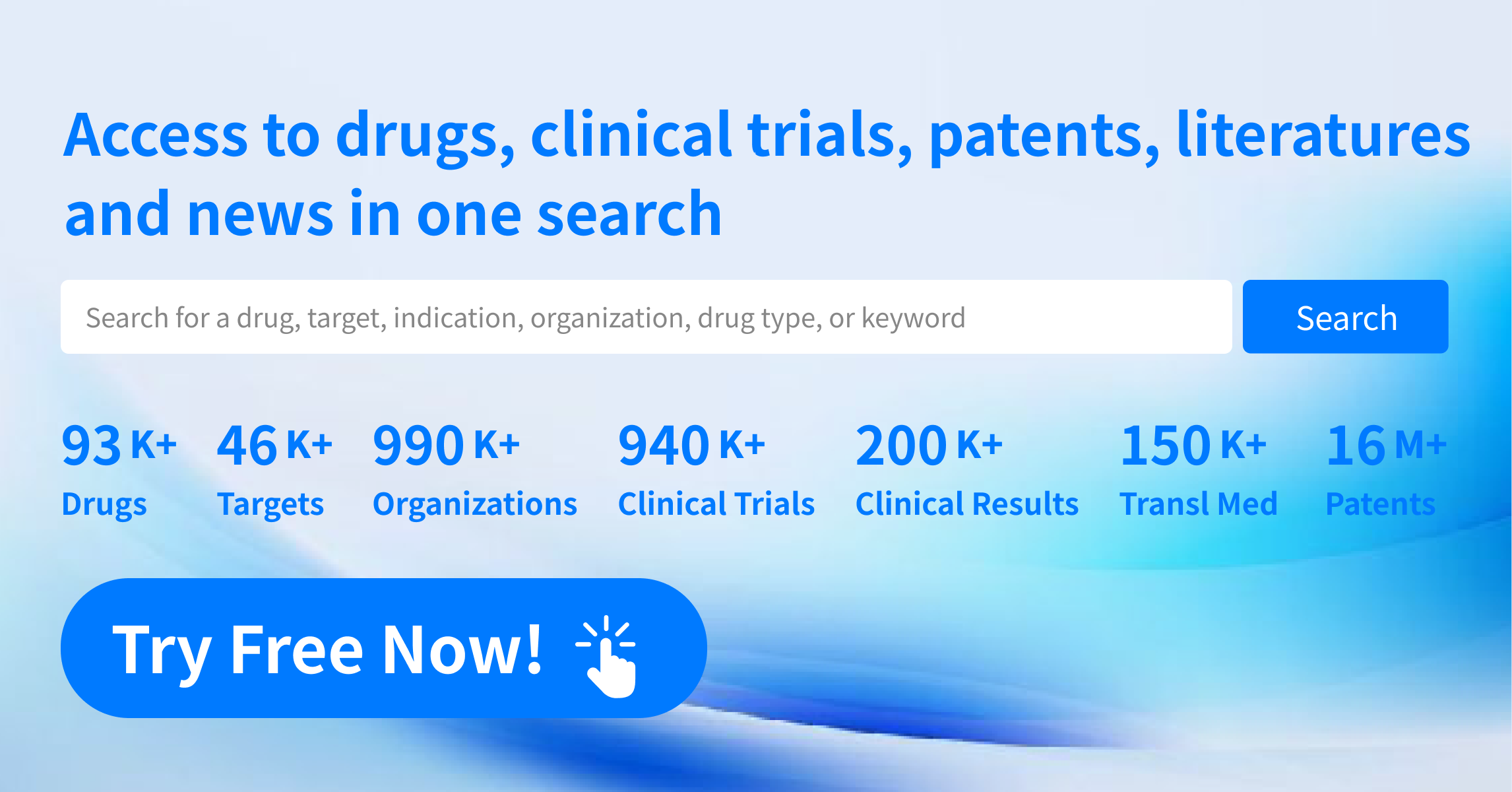Pharma Frontiers: Daily Digest of Global Pharmaceutical News – Aug 20
1.Astellas/Pfizer's innovative Nectin-4 targeted ADC, Enfortumab vedotin, gets approved in China
On August 19, it was reported on the official website of NMPA, that the Nectin-4 targeted ADC injection, Enfortumab vedotin, submitted by Astellas, has been approved (JXSS2300022/3), for the treatment of patients with locally advanced or metastatic urothelial cancer who have previously undergone PD-1/PD-L1 inhibitors and platinum-based chemotherapy. Enfortumab vedotin is the world's first approved Nectin-4 targeted ADC, and this approval has made it the first in China. Nectin-4 is a protein located on the cell surface and is highly expressed in bladder cancer. Enfortumab vedotin is a pioneering antibody-drug conjugate (ADC), which directly targets Nectin-4. It was jointly developed by Astellas and Seagen, a subsidiary of Pfizer. Non-clinical data shows that enfortumab vedotin binds to cells expressing the Nectin-4 protein, then internalizes and releases the anti-tumor agent Monomethyl auristatin E (MMAE) into the cells, causing cell cycle arrest and programmed cell death (apoptosis) to exert its anti-cancer activity. Previously, the drug has been approved to treat urothelial cancer in the United States, Japan, and the EU. The application for market approval in China is based on data from a single-arm, open-label, multicenter phase II bridging clinical trial, the EV-203 trial (NCT04995419), conducted in China. This trial aimed to evaluate the efficacy, safety, and pharmacokinetic characteristics of enfortumab vedotin in treating Chinese patients with locally advanced or metastatic urothelial cancer who have previously undergone PD-1/PD-L1 inhibitors and platinum-based chemotherapy. The study enrolled 40 Chinese patients, and the primary endpoint was the objective response rate (ORR) confirmed by the Independent Review Committee (IRC).
2.Bavarian Nordic applies to the EU for regulatory application to expand the age indications for monkeypox vaccine
Recently, Bavarian Nordic announced that it has submitted clinical data to the European Medicines Agency (EMA) to support the expansion of indications for its Imvanex (MVA-BN) smallpox and monkeypox (mpox) vaccine to adolescents aged 12 to 17. Although the vaccine is currently only suitable for adults aged 18 and above, during the 2022 global monkeypox outbreak, the U.S. FDA has granted the vaccine an Emergency Use Authorization (EUA) for use in teenagers. According to the press release, MVA-BN is the first monkeypox vaccine approved by the U.S. FDA and EMA. Monkeypox is a zoonotic virus that is considered a less severe version of the smallpox virus, with typical characteristics of early fever, body pain, and headache. If uncontrolled, infection can lead to rash and skin rupture. Monkeypox spreads through bodily contact. This application is mainly based on the interim results of a phase 2 clinical trial, involving a total of 315 adolescents aged 12-17 and 211 adults aged 18 and above. The results showed that the immune response between the two age groups was not inferior to other age groups after receiving two standard doses of the MVA-BN vaccine, and the safety was similar. Bavarian Nordic is also preparing for a clinical trial to assess the immunogenicity and safety of MVA-BN in children aged 2-12, aiming to further expand the vaccine's indications to younger populations. This trial is planned to start later this year in Congo and Uganda, which may also support MVA-BN to obtain regulatory approval in African countries and regions where monkeypox is prevalent. MVA-BN is a non-replicating smallpox/monkeypox vaccine and the first monkeypox vaccine approved in the United States and Switzerland (under the trade name Jynneos), Canada (under the trade name Imvamune), the European Union/European Economic Area, and the United Kingdom (under the trade name Imvanex).
3.Johnson & Johnson (J&J) Discloses EGFR/cMET Dual Antibody+Lazertinib Therapy Follow-Up Data for EGFR Mutated Advanced Stage NSCLC
On August 17, Johnson & Johnson disclosed longer follow-up data from the MARIPOSA study at WCLC2024. The MARIPOSA study, led by J&J, is a global, randomized, controlled, phase III clinical trial of an EGFR/C-MET dual antibody + EGFRi combination program, which aims to evaluate the therapeutic efficacy and safety of amivantamab combined with lazertinib (A+L) compared to osimertinib monotherapy and lazertinib monotherapy for first-line treatment of EGFR mutated advanced stage NSCLC. As of May 13, 2024 (median follow-up of 31.1 months), 44% (185/421) and 34% (145/428) of patients were still receiving treatment in the amivantamab-lazertinib and osimertinib treatment groups, respectively. There were 155 and 233 patients in the ami+laz and osimertinib groups, respectively, who were assessed by researchers as having disease progression and discontinued treatment. Of these patients, 72% (111/155) and 74% (173/233) began subsequent treatment, with Carboplatin-Pemetrexed being the most common first subsequent treatment in both groups (ami+laz, 26% [29/111]; osimertinib, 28% [48/173]). After the first subsequent treatment, the ami+laz group benefited more from PFS (PFS2) (HR, 0.73; 95% CI, 0.59-0.91; nominal P=0.004). Compared to osimertinib, patients who received ami+laz therapy had significantly longer median times to discontinuation and subsequent treatment, and there was a tendency for the intracranial PFS to be superior in the ami+laz group. OS reached a statistically significant endpoint, with the median OS in the ami+laz group being not estimable (HR, 0.77; 95% CI, 0.61-0.96; nominal P=0.019), and it was 37.3 months in the osimertinib group (HR, 0.77; 95% CI, 0.61-0.96; nominal P=0.019). At 24 months, 75% and 70% of patients were alive in the ami+laz and osimertinib groups, respectively, and at 36 months, the survival rates were 61% and 53%, respectively. For initial treatment of EGFR mutated advanced NSCLC patients, compared to osimertinib, ami+laz significantly delayed symptom progression, once again demonstrating that this combination scheme can better control disease and related symptoms, and may potentially become a new standard for first-line treatment of EGFR mutated Non-Small Cell Lung Cancer.
4.Northland Biotech’s gene therapy new drug NL003 Phase III Clinical Trial Unblinding
Recently, the Phase III clinical trial for the indication of rest pain of the "recombinant human hepatocyte growth factor naked plasmid injection" (code name NL003), developed by Northland to treat lower extremity ischemic disease, has been unblinded as planned, with the main indicators meeting expectations. Preliminary results show: the main endpoint of 180-day complete pain disappearance rate, NL003 group is significantly better than placebo control group (p<0.0001); this product has good safety, no serious adverse reactions related to the drug were found. The phase III clinical trial of NL003 mainly targets CLI and is divided into ulcer (Rutherford 5) and rest pain (Rutherford 4) two indications for separate trial conduct. The trial adopts a randomized, double-blind, placebo, parallel control study mechanism, and was conducted in 24 hospitals in China. Among them, 242 cases were enrolled for ulcer application and 302 cases for the rest pain trial. The trial for the ulcer indication was completed ahead of schedule in February 2024 and formally accepted by the CDENewDrugRegistrationApplication (NDA) in July, making it the first naked plasmid gene therapy drug in China to apply for an NDA. After the unblinding of the indication for rest pain, a comprehensive in-depth analysis needs to be carried out according to the plan and statistical analysis plan, and the clinical trial summary report needs to be completed. NL003 is an innovative gene therapy drug. By locally injecting NL003 into the ischemic muscles, the plasmid transfected the striated muscle cells and continuously expressed and secreted the HGF protein with the function of promoting blood vessel growth, thereby promoting the regeneration of new blood vessels, forming collateral circulation at the ischemic site, and increasing the blood supply of the ischemic site. Compared with traditional vascular reconstruction surgery, NL003 has obvious advantages in trauma, convenience of operation, patient compliance, efficacy and durability, bringing lasting clinical benefits to patients.
5.Visirna's APOC3-targeted oligonucleotide drug VSA001 has been approved for Phase III international multi-center clinical trials in China
Recently, Visirna announced that its Class 1 new drug application for APOC3-targeted oligonucleotide drug, VSA001 injection, has been approved by the National Medical Products Administration to conduct Phase III clinical trials in China to reduce severe hypertriglyceridemia (abbreviated as "SHTG"). The aim is to evaluate the safety, efficacy, and pharmacokinetics of VSA001 in adult patients with SHTG. Visirna’s partner, Arrowhead Pharmaceuticals, has already initiated this international multi-center clinical trial worldwide, and Visirna will also soon join this research in China. VSA001 is a liver-targeted small interfering RNA (siRNA) drug that reduces the expression of apolipoprotein C3 (APOC3) by efficiently and durably silencing its mRNA levels. It then effectively reduces serum TG and TG-rich lipoprotein (TRL) and its degradation residue levels via both lipoprotein lipase (LPL)-dependent and independent pathways. SHTG, a common dyslipidemia, is defined as having triglyceride (TG) levels ≥ 500 mg/dl and can be caused by various factors including genetics, diet, lifestyle (such as excessive alcohol consumption), and comorbidities like obesity, metabolic syndrome, hypothyroidism, and type 2 diabetes. SHTG can lead to acute pancreatitis and increased risk of cardiovascular diseases and atherosclerosis. Recurrence of acute pancreatitis could potentially lead to chronic pancreatitis and related endocrine dysfunction.
6.CARsgen Therapeutics completes full enrolment for Phase 2 clinical trial of CAR-T Cell Therapy in China
On August 19, CARsgen Therapeutics announced the completion of full enrolment for its Confirmatory Phase 2 clinical trial in China of Satricabtagene Autoleucel (CT041), a CAR-T cell product, for the treatment of late-stage gastric cancer/gastroesophageal junction adenocarcinoma. Gastric cancer is one of the most common malignant tumors in China. Public data shows that there were approximately 359,000 new cases and 260,000 deaths from gastric cancer in China in 2022. Patients with late-stage gastric cancer face limited treatment options and poor prognosis, urgently needing more effective treatments. This Phase 2 clinical trial of Satricabtagene Autoleucel is an open-label, multicenter, randomized controlled study conducted in China, aiming to evaluate the effectiveness and safety of Satricabtagene Autoleucel in treating Claudin18.2 positive, late-stage gastric cancer/gastroesophageal junction adenocarcinoma patients who have failed at least two prior treatments. Satricabtagene Autoleucel is a CAR-T cell product targeting Claudin18.2 protein, currently under clinical development for the treatment of Claudin18.2 positive solid tumors, primarily treating gastric cancer/gastroesophageal junction adenocarcinoma and pancreatic cancer. The product has received several special designations for stomach and esophageal cancers in the USA and Europe, including Regenerative Medicine Advanced Therapy (RMAT) designation, Priority Medicines (PRIME) designation, Orphan Medicament designation etc. Results of the investigator-initiated Phase 1 clinical trial CT041-CG4006 have been published in “Nature Medicine”. Among the 51 patients with baseline target lesions of gastric cancer/gastroesophageal junction adenocarcinoma (GC/GEJ), the overall response rate (ORR) and disease control rate (DCR) of Satricabtagene Autoleucel monotherapy were 54.9% (28/51), and 96.1% (49/51), respectively, with a median duration of response (mDOR) of 6.4 months. Overall safety was controllable, with no dose-limiting toxicity (DLTs), grade 3 or above cytokine release syndrome (CRS), or immune effector cell-associated neurotoxicity syndrome (ICANS) observed.
7.Huadong Medicine terminates the R&D of an externally introduced GLP-1 drug
Recently, Huadong Medicine has terminated the R&D of an externally introduced GLP-1 drug. Huadong Medicine is pushing forward as many as 10 pipelines in the endocrine field. Especially in the field of GLP-1 target drugs, which are popular all over the world known as "weight-loss miracle drugs", the company has built a long-acting and multi-target differentiated pipeline including oral and injectable forms, many of which are in phase II clinical trials. The oral small molecule GLP-1 receptor agonist HDM1002 for the indication of weight management in overweight or obese populations has completed patient enrollment for its Phase II clinical trial, and the first patient has been enrolled for its diabetes indication Phase II trial. The GLP-1R/GIPR (glucose-dependent insulinotropic polypeptide receptor) dual-target long-acting peptide agonist HDM1005 for weight management in overweight or obese populations, and type 2 diabetes, has been approved for a China IND (Investigational New Drug) application in March 2024, and for a US IND application in April 2024. The competition in the weight loss drug market is fierce, with Novo Nordisk's semaglutide and Eli Lilly's tirzepatide both approved in China. Currently, Huadong Medicine has only one approved liraglutide injection for weight loss indications, which is generally considered less effective and less compliant than the former two. Perhaps considering the company's bloated pipeline of up to 10 items for indications such as weight loss and diabetes, Huadong Medicine also disclosed on the same day of its semi-annual report that its wholly-owned subsidiary Hangzhou Zhongmei Huadong Pharmaceutical Co., Ltd. has signed a project termination confirmation letter with its US partner vTv Therapeutics LLC, deciding to terminate the follow-up R&D of the oral GLP-1 drug TTP273 project.
How to obtain the latest research advancements in the field of biopharmaceuticals?
In the Synapse database, you can keep abreast of the latest research and development advances in drugs, targets, indications, organizations, etc., anywhere and anytime, on a daily or weekly basis. Click on the image below to embark on a brand new journey of drug discovery!




